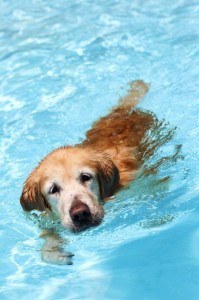There’s more to training than housebreaking
Training your puppy doesn’t begin and end with housebreaking. Socialization is just as important in having a happy, well-behaved pet. According to the American Veterinary Society of Animal Behavior (AVSAB), owners should enroll puppies as young as seven or eight weeks in training classes, as long as it is seven days after the pup’s first shot and de-worming treatment.
PetSmart trainer Debbie McKnight notes that starting before 12 weeks introducing your puppy to new people, dogs and experiences will inform you of future behavior and reactions. This is true whether you are talking about an easily trained Poodle or a less obedient animal like a Labrador Retriever.
In the vast majority of cases, puppies that socialize with other puppies, dogs, and humans mature into healthy, confident dogs. Puppies that are not allowed or encouraged to socialize may become passive aggressive, startle easily, bark at people with whom they are not familiar. They can also become stressed out whenever confronted with new experiences.
also become stressed out whenever confronted with new experiences.
Just as house training takes time and patience, socializing your puppy is an everyday commitment. But there are strategies to make the process more fun for both owner and pet. Attending scheduled classes or going to dog parks where the puppy can interact with tolerant, non-aggressive adult dogs help puppies learn how to behave in different settings.
Make an effort to let your new puppy meet as many people as they can, both inside your home and out in public. Just make sure to maintain the dog’s comfort level. If they like to be petted by strangers, go for it. If they don’t, request the person just speak to the dog calmly to keep it from getting too nervous.
If possible, take your puppy with you to as many places you can: driving to the post office to mail a letter, hiking, walks around the neighborhood and swimming in the pool.
Playtime with other dogs is encouraged, as long as aggression doesn’t develop. McKnight adds: “Good play involves give and take from both dogs. The important part is that all parties are having a good time.”
